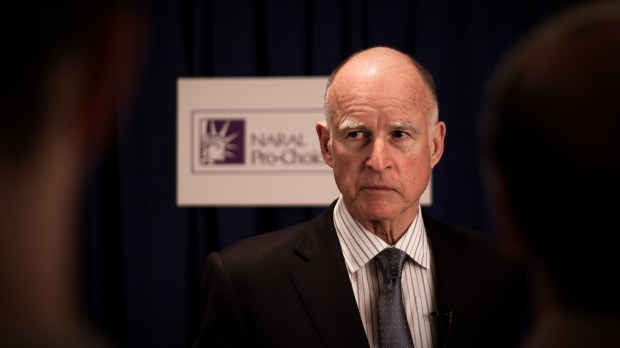California’s legalization of physician-assisted suicide “sends a message” that some people’s lives are “less worthy to be lived,” a national pro-life spokeswoman said Monday.
Carol Tobias, president of National Right to Life made the remarks after California Gov. Jerry Brown signed a bill to legalize the practice.
When the law takes effect sometime next year, assisted suicide will be legal in five states, including Oregon, Washington, Montana and Vermont. There is fear that Brown’s decision will encourage other states to follow suit.
Brown, a one-time Jesuit seminarian, said he signed the bill because he wouldn’t want to be in pain in his final days.
“I do not know what I would do if I were dying in prolonged and excruciating pain,” he wrote in a message explaining his decision. “I am certain, however, that it would be a comfort to be able to consider the options afforded by this bill. And I wouldn’t deny that right to others.”
Modern medicine has many effective means to control pain, and the hospice movement has made great strides in alleviating the suffering many people face in their final days.
Dr. Aaron Kheriaty, director of the medical ethics program at the University of California, Irvine, School of Medicine, told The New York Times that he expected a number of hospitals would refuse to offer life-ending drugs, to preserve their own reputations and relationships with patients.
“I worry about what this is going to do to the perception of medicine,” he said. “I think you’re going to see more and more mistrust of medical professional by patients worried about what will happen if they enroll in end-of-life care.”
Tobias of National Right to Life said the new law “shows a blatant disregard for the lives of California’s medically vulnerable citizens and sends a message to these citizens that their lives are less worthy to be lived. The so-called ‘right-to-die’ movement promotes these laws as simply ‘another medical option’ at the end of life, but their real goal is euthanasia on demand for any reason.”
“There are no real safeguards,” she said. “It is a well-established fact that nearly every terminally ill patient who desires death is suffering from treatable depression. In Oregon, fewer than 6% of patients have been referred for psychiatric evaluation before obtaining life-ending drugs. Rather than treat clinically depressed patients, the Oregon system, and the system that would be established by the California bill, indicates that you instead help the patients kill themselves.”
Tim Rosales of Californians Against Assisted Suicide told LifeNews it was one thing for Gov. Brown, whom he said is a person with wealth and access to the world’s best medical care and doctors, to approve of assisted suicide. But there are “millions of Californians living in healthcare poverty without that same access—these are the people and families potentially hurt by giving doctors the power to prescribe lethal overdoses to patients.”
LifeNews reported that a group called the Life Legal Foundation suggested that the manner in which the law was passed invites a lawsuit for reversal. The bill, ABX2-15, was introduced during an extraordinary procedure by which the governor can call the Legislature into session to enact legislation that cannot wait until the next regularly scheduled term. Brown convened an extraordinary legislative session on June 19, 2015 to secure funding for Medi-Cal to provide for millions of new Medi-Cal beneficiaries under the Affordable Care Act.
“We expect our state legislators to uphold the State Constitution and not bend the law to further their own ends,” said Life Legal Executive Director Alexandra Snyder, “Californians have a right to an open, deliberative, and transparent legislative process when it comes to law and policy changes that are literally a matter of life and death.” Snyder said that, while the California Constitution permits the Governor to issue proclamations to convene extraordinary legislative sessions, the Legislature is prohibited from enacting bills that are not the specific subject of the proclamation. In this case, Governor Brown’s proclamation expressly states that the purpose of the extraordinary session on Medi-Cal is to “stabilize the General Fund’s costs for Medi-Cal” and to “provide rate increases for providers of Medi-Cal and developmental disability services.” The Legislature was specifically tasked with enacting legislation to expand access to services, increase oversight, and “reduce the cost of providing health care services.” Snyder added that Brown himself has stated that the extraordinary session was not the proper vehicle for AB2X-15 and has recommended that the bill be taken up during the next session. “The Legislature acted outside the permissible scope of its authority under the California Constitution, article IV, section 3. in passing AB2X-15. Physician-assisted suicide was not the subject of the extraordinary session and should never be considered a means to stabilize funding for Medi-Cal and reduce the cost of health care,” she concluded.

